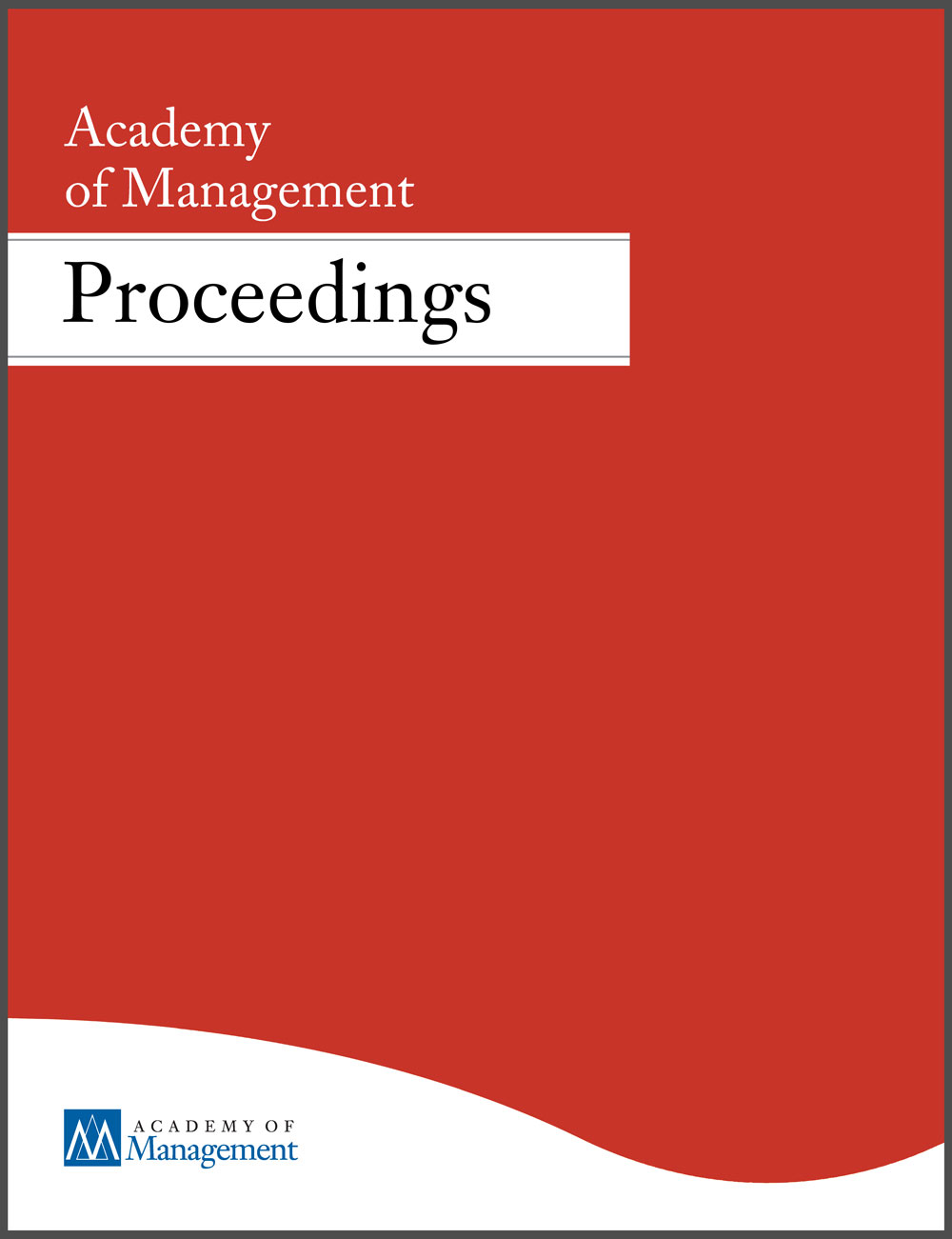Academic articles
Practitioner articles
Working papers
Books
Book chapters
Case studies
Other publications
Subject(s)
Marketing
Keyword(s)
multivariate analysis
Volume
15th ed.,
ISBN
978-3-662-56654-1
ISBN (Online)
978-3-662-56655-8
Subject(s)
Human resources management/organizational behavior
Keyword(s)
Leadership, crisis management, decision making, team interaction
When managers are confronted with a corporate crisis, such as the explosion of BP’s Deepwater Horizon oil exploration platform, they have to operate under conditions that differ fundamentally from those experienced during normal management processes. Among other things, they may have to work with specialized teams and understand their priorities and decision-making processes, without giving up their own responsibilities. The following case simulation confronts participants with an escalating crisis situation in an unfamiliar environment and requires a series of team decisions to be taken under time pressure. The case is based on real experiences of the German Air Force during its ISAF (International Security Assistance Force) mission in Afghanistan.
The participants are divided into groups of four, each group being responsible for a large military transport aircraft and its mission. Within the groups, each participant assumes the role of a specified flight crew member. Each participant receives individual instructions on their roles and duties as well as background information on the other crew members. Based on this information, the teams must prepare and execute their flight missions. The main objective of the simulation is to highlight the challenges of sharing information within a team and of decision-making under time pressure in an unfamiliar environment.
The participants are divided into groups of four, each group being responsible for a large military transport aircraft and its mission. Within the groups, each participant assumes the role of a specified flight crew member. Each participant receives individual instructions on their roles and duties as well as background information on the other crew members. Based on this information, the teams must prepare and execute their flight missions. The main objective of the simulation is to highlight the challenges of sharing information within a team and of decision-making under time pressure in an unfamiliar environment.
The case simulation may be used in a leadership course in MBA programs. It may also be used in executive-education programs to support sessions on both group decision-making and crisis management. On the whole, the case may be used to learn:
1. how to cooperate in teams
2. how team decisions may effectively be made
3. how to prioritize tasks under time pressure in a crisis situation
4. how to examine the impact of framing in decision-making processes
1. how to cooperate in teams
2. how team decisions may effectively be made
3. how to prioritize tasks under time pressure in a crisis situation
4. how to examine the impact of framing in decision-making processes
| buy now | buy now | buy now |
Subject(s)
Strategy and general management
Keyword(s)
General management, decision making, international business, international marketing, organizational behavior, business strategies, external environment analysis, sales
On the surface, this case study deals with a straightforward sales management issue: The protagonist, Andreas Keller, needs to increase the company’s revenue to get the Chinese business unit out of the red. However, as students dig deeper into the case study, they detect the following underlying, intriguing issues:
- Setting priorities and making decisions in sales management, especially in times of distress.
- Understanding intercultural and leadership challenges for a foreign “airborne manager” (空降) in a foreign subsidiary.
- Comprehending the suitability of premium, service-based business models in China.
- Understanding the limitations of applying business models from mature markets in Western countries to China.
- Preparing for expatriate positions in China and elsewhere.
| buy now | buy now | buy now |
Subject(s)
Economics, politics and business environment; Information technology and systems
Keyword(s)
Cybersecurity, cyber defense, critical infrastructure protection, digital sovereignty, data protection, policy, strategy, regulation
JEL Code(s)
K24, N44, O25, O38
With the digitization of nearly all aspects of life, our societies increasingly depend on the resilience and security of computing and communication technologies. Hence, the protection of information technology (IT) against unauthorized access, attack, and accidental failure, has become a priority for nation-states around the world. Throughout the past one or two decades, most countries have adopted strategies, policies, and practical steps to protect the security of IT and critical infrastructures within their territory, and, by extension, their citizens. These practices are generally subsumed under the umbrella of cybersecurity. The book provides an analysis of the evolution of cybersecurity policy in Germany over the past two and a half decades. It highlights development lines as well as upcoming strategic challenges of the German cybersecurity policy.
Volume
1st ed.,
Pages
76
ISBN
978-3-319-90013-1
ISBN (Online)
978-3-319-90014-8
Subject(s)
Human resources management/organizational behavior
Keyword(s)
Self-confidence appearance, gender, job performance, prosocial orientation, organizational influence
Appearing self-confident is instrumental for progressing at work. However, little is known about what makes individuals appear self-confident at work. We draw on attribution and social perceptions literatures to theorize about both antecedents and consequences of appearing self-confident for men and women in male-dominated professions. We suggest that performance is one determinant of whether individuals are seen as confident at work, and that this effect is moderated by gender. We further propose that self-confidence appearance increases the extent to which individuals exert influence in their organizations. However, for women, appearing self-confident is not enough to gain influence. In contrast to men, women in addition are “required” to be prosocially oriented. Multisource, time-lag data from a technological company showed that performance had a positive effect on self-confidence appearance for both men and women. However, the effect of self-confidence appearance on organizational influence was moderated by gender and prosocial orientation, as predicted. Our results show that through self-confidence appearance, job performance directly enables men to exert influence in their organizations. In contrast, high performing women gain influence only when self-confidence appearance is coupled with prosocial orientation. We discuss the implications of our results for gender equality, leadership, and social perceptions.
© 2017 Wiley Periodicals, Inc.
Volume
57
Journal Pages
839–854
Subject(s)
Finance, accounting and corporate governance
Keyword(s)
Bank competition, microfinance, microcredit, microbank, loan rates, information dispersion, PAR, portfolio quality
JEL Code(s)
D4, G21, L1, O1
We study the effects of competition on loan rates and portfolio-at-risk in microcredit markets using a new database from rating agencies, covering 379 microbanks located in 67 countries between 2002 and 2008. Our study reveals different competitive effects in nonprofit and for-profit microbanks. We find that for-profit microbanks charge significantly lower rates and exhibit improved portfolio-at-risk in less concentrated markets. In particular, the effect of concentration on loan rates is nearly three times the one reported in previous studies in banking. In contrast, nonprofit microbanks are relatively insensitive to changes in concentration. We control for interest rate ceilings, which very significantly reduce rates in for-profit microbanks. However, our study also uncovers a competitive interplay between for-profit and nonprofit microbanks. In particular, the PAR of nonprofit microbanks deteriorates when the proportion of profit-oriented microbanks increases. Finally, we find evidence consistent with dispersion of borrower-specific information among competing microbanks in the for-profit sector, even after controlling for the presence of credit registries.
Volume
50
Journal Pages
893–937
Subject(s)
Human resources management/organizational behavior
Keyword(s)
Crowdsourcing science, reproducibility
The widespread replication of research findings in independent laboratories prior to publication is suggested as a complement to traditional replication approaches. The pre-publication independent replication approach further addresses three key concerns from replication skeptics by systematically taking context into account, reducing reputational costs for original authors and replicators, and increasing the theoretical value of failed replications.
© Cambridge University Press 2018
Volume
41
ISSN (Online)
1469-1825
ISSN (Print)
0140-525X
Subject(s)
Product and operations management
Keyword(s)
Supply chain management, uncertain consumer taste, product introduction, product positioning, store brands, national brands, information acquisition, information sharing, vertical differentiation, horizontal differentiation
In this paper, we study how a retailer can benefit from acquiring consumer taste information in the presence of competition between the retailers store brand (SB) and a manufacturers national brand (NB). In our model, there is ex-ante uncertainty about consumer preferences for distinct product features, and the retailer has an advantage in resolving this uncertainty because of his close proximity to consumers. Our focus is on the impact of the retailers information acquisition and disclosure strategy on the positioning of the brands. Our analysis reveals that acquiring taste information allows the retailer to make better SB positioning decisions. Information disclosure, however, enables the manufacturer to make better NB positioning decisions – which in return may benefit or hurt the retailer. For instance, if a particular product feature is quite popular, then it is beneficial for the retailer to incorporate that feature into the SB, and inform the manufacturer so that the NB also includes this feature. Information sharing, in these circumstances, benefits both the retailer and the manufacturer, even though it increases the intensity of competition between the brands. But, there are situations in which the retailer refrains from information sharing so that a potentially poor positioning decision by the NB makes the SB the only provider of the popular feature. The retailer always benefits from acquiring information. However, it is beneficial to the manufacturer only if the retailer does not introduce an SB due to the associated high fixed cost.
With permission of Elsevier
Volume
268
Journal Pages
555–568
Subject(s)
Information technology and systems; Technology, R&D management
Keyword(s)
Cybersecurity, information security, legislation, risk management
With the increasing importance of the security of information technology for all areas of life, the IT security law has developed step by step without the European and German legislation being able to follow an overall draft. At the latest with the IT security regulations in the General Data Protection Regulation and the expansion of sector-specific regulations on IT security, questions of the systematization of the new area of law arise. The authors examine three key questions - the modeling of systems subject to the law, the concept of risk management, and the determination of the state of the art security measures. Finally, they outline the main elements of a restructuring of IT security law.
[Das IT-Sicherheitsrecht will die IT-Sicherheit schützen, folgt aber weder auf europäischer noch auf deutscher Gesetzgebungsebene einem Gesamtentwurf. Der Beitrag geht drei Schlüsselfragen nach – der Modellierung der dem Recht unterworfenen Systeme (II.), dem Risikobegriff (III.) sowie der Ermittlung des Standes der Technik (IV.) – und entwirft Grundzüge einer Strukturierung des IT-Sicherheitsrechts (V.).]
Volume
34
Journal Pages
706–720
ISSN (Online)
2194-4172
Subject(s)
Human resources management/organizational behavior
Keyword(s)
Dark triad, self-uncertainty, motivation to lead, hostile attributions, leadership support, experiment
We propose a two-fold explanation, based on self-related uncertainty, to explain why individuals with antisocial personalities may be more likely to attain leadership positions in the upper echelons of organizations. First, in three experiments (Ns = 141, 238, and 602), we showed that individuals who score high on the dark triad of personality (i.e. psychopathy, narcissism and Machiavellianism) react to the distress associated with self-related uncertainty through enhanced hostility against others, which in turn increases their motivation to lead. Second, in two correlational studies (Ns = 58 and 87) and one experiment (N = 180), we found that hypothetical and actual leaders with psychopathic traits are more likely to be supported by individuals who feel uncertain about their own sense of self. Together, our results provide evidence of the significant role played by self-uncertainty in explaining why and when dark triad individuals are able to attain leadership positions. We discuss implications for theory and research on the dark triad, leadership, and identity, and their relevance for understanding both organizational and public leadership.
With permission of the Academy of Management
Volume
2018
ISSN (Online)
2151-6561
ISSN (Print)
0065-0668


